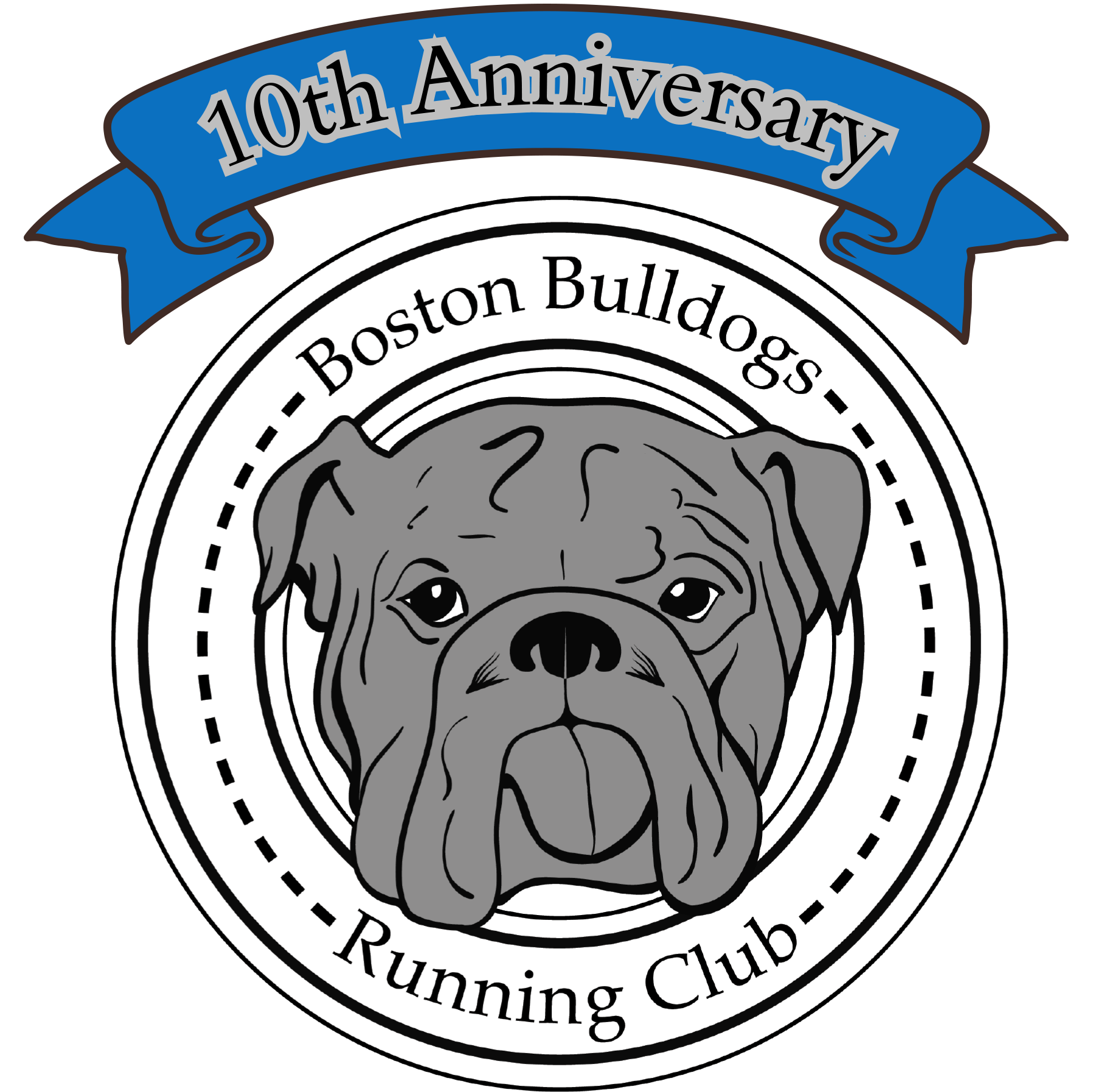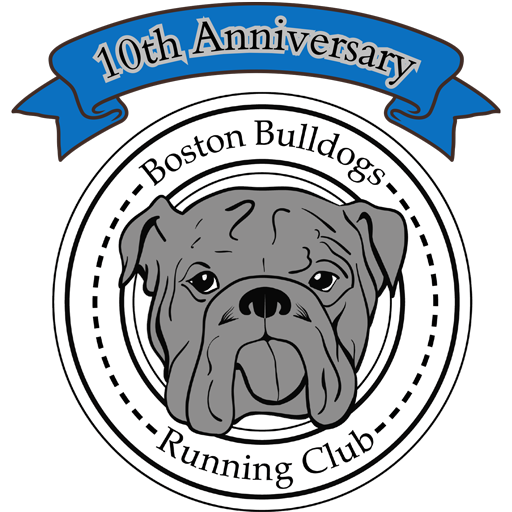Boston Bulldogs Running Club Mission
The Boston Bulldogs Running Club is an innovative peer-to-peer collective of recovering drug and alcohol abusers and their allies, who use the fellowship of the road to provide support and solidarity to others like themselves.
The club was founded in 2015 by social worker and recovered heroin addict Mike Ferullo, who in the 1970s had used long-distance running as part of his own rehab regimen. Coach Ferullo believed the courage and tenacity that running had instilled in him could help others on their own hard path to
sobriety.
The Boston Bulldogs Running Club is a co-ed 501(c)3 non-profit that provides an anonymous and safe community of support for all those adversely affected by addiction – those in recovery, their families and friends, caregivers, the clinical community, healthcare and wellness professionals and the community at large.
We organize five runs per week at four different locations and offer programs such as Full Circle 1 and Full Circle 2 for new members, a Leadership Program to train members for leadership roles within the Club, and Giving Back programs at jails, recovery centers, shelters and sober living houses.
We also provide “Junior Bulldogs” programs for at-risk youth and are an official charity of the Boston Athletic Association. Additionally, we host an annual “Run for Recovery 5K and Tribute” event at Franklin Park in Boston every May, attracting approximately 500+ runners and members of the greater Boston recovery community.
Why Our Mission is so Critical
Massachusetts is currently facing a critical public health crisis with addiction. 2,125 individuals died from opioid-related overdoses in the state in 2023.
This alarming death toll indicates that existing treatment options are not effectively addressing the needs of all individuals struggling with addiction. It is crucial that individuals battling addiction receive personalized support tailored to their specific circumstances. Without appropriate support, individuals often experience relapses which result in severe consequences including medical emergencies like strokes, loss of life, lost wages, homelessness, and family turmoil. The repercussions of addiction are not only felt by individual families but also by entire communities.
These statistics underscore the widespread impact of the addiction crisis:
- In Boston, MA opioid-related overdose deaths increased by 12% from 2022 to 2023, despite a 10% decrease statewide during the same period. 1
- In 2022, opioid overdose deaths in the U.S. reached a new peak of 81,806, the equivalent to over 224 people dying each day from opioid overdoses.2
- In 2023, 48.5 million Americans aged 12 and older (16.7% of this population) had battled a substance use disorder within the past year.3
- In 2020 the economic cost of the opioid epidemic in the United States was estimated to be $1.5 trillion.4
- Mental health is closely linked to substance abuse. In the U.S., 59.3 million adults (23.1%) experienced a mental illness in the past year.5
- Data from the 2023 National Survey on Drug Use and Health showed that 20.4 million American adults (7.9%) suffered from both a mental health disorder and a substance use disorder in the past year.6
- In Suffolk County, Black men aged 54 to 73 are overdosing at higher rates than any other group. In 2023, their overdose deaths were four times their share of the population.7
- The addiction crisis affects various demographic groups differently. For example, American Indian, Alaskan Native (27.6%) and Multiracial people (25.9%) had higher rates of substance use disorder compared to other racial or ethnic groups.8
- Massachusetts young people are 6th nationwide in prevalence of alcohol use and binge drinking.9
- One out of every four children in MA is directly impacted by substance use disorder in their family, putting them at greater risk for various health issues and substance use disorder.¹10
- https://www.boston.gov/news/public-health-commission-increased-prevention-services-latest-data-highlights-major-racial
- https://usafacts.org/articles/opioid-addiction-deaths-and-treatment-latest-analysis-data/
- https://americanaddictioncenters.org/rehab-guide/addiction-statistics-demographics
- https://usafacts.org/articles/opioid-addiction-deaths-and-treatment-latest-analysis-data/
- https://www.samhsa.gov/newsroom/press-announcements/20231113/hhs-samhsa-release-2022-nsduh-data
- https://www.samhsa.gov/data/report/2023-nsduh-detailed-tables
- https://www.bostonglobe.com/2025/01/30/metro/boston-black-men-dying-drug-overdoses-alarming-rates/
- https://www.samhsa.gov/data/sites/default/files/reports/rpt39443/2021NSDUHFFRRev010323.pdf
- https://www.bu.edu/sph/files/2022/12/BUSPH_Alcohol-Health-and-Safety-in-Massachusetts.pdf
- https://www.rfkcommunity.org/our-services/children-of-alcoholism-and-substance-abuse
Different groups face varying levels of risk and challenges when it comes to addiction and relapse. Poverty and unemployment can worsen the likelihood of developing substance use issues. Communities of color often do not have access to adequate treatment options or affordable healthcare. Women tend to develop addictions faster than men, yet many treatment programs do not cater to their specific needs. Several obstacles make this problem worse including high healthcare expenses, social stigma, and legal consequences. When these factors are combined, it becomes especially difficult for certain groups to receive the necessary help for recovery.
Relapse can have a devastating impact, causing individuals to distance themselves from their support systems and making the road to recovery even more difficult. Nathan’s story (name changed) is a prime example of this harsh reality. The Boston Bulldogs had the chance to visit him at his sober living residence. However, following the death of his father he left his sober living home, relapsed, and experienced a severe double stroke. Nathan’s experience highlights the significance of the work of the Boston Bulldogs. We establish resilience and connections that can help individuals endure tough times. Addiction has no cure. It is a persistent, chronic disease that requires ongoing support. We offer a lifeline that assists people in staying alive one more day, ultimately leading to weeks, months, and years of sobriety. Nonetheless, we understand that our efforts may not be able to save or assist everyone. What we can do is show up, be present, create a community where members feel welcomed and accepted and equip individuals with the tools to combat their addiction. For certain members, this can mean the difference between life and death.
SIGN UP FOR OUR NEWSLETTER
By submitting this form, you are consenting to receive marketing emails from: Boston Bulldogs Running Club. You can revoke your consent to receive emails at any time by using the SafeUnsubscribe® link, found at the bottom of every email. Emails are serviced by Constant Contact



